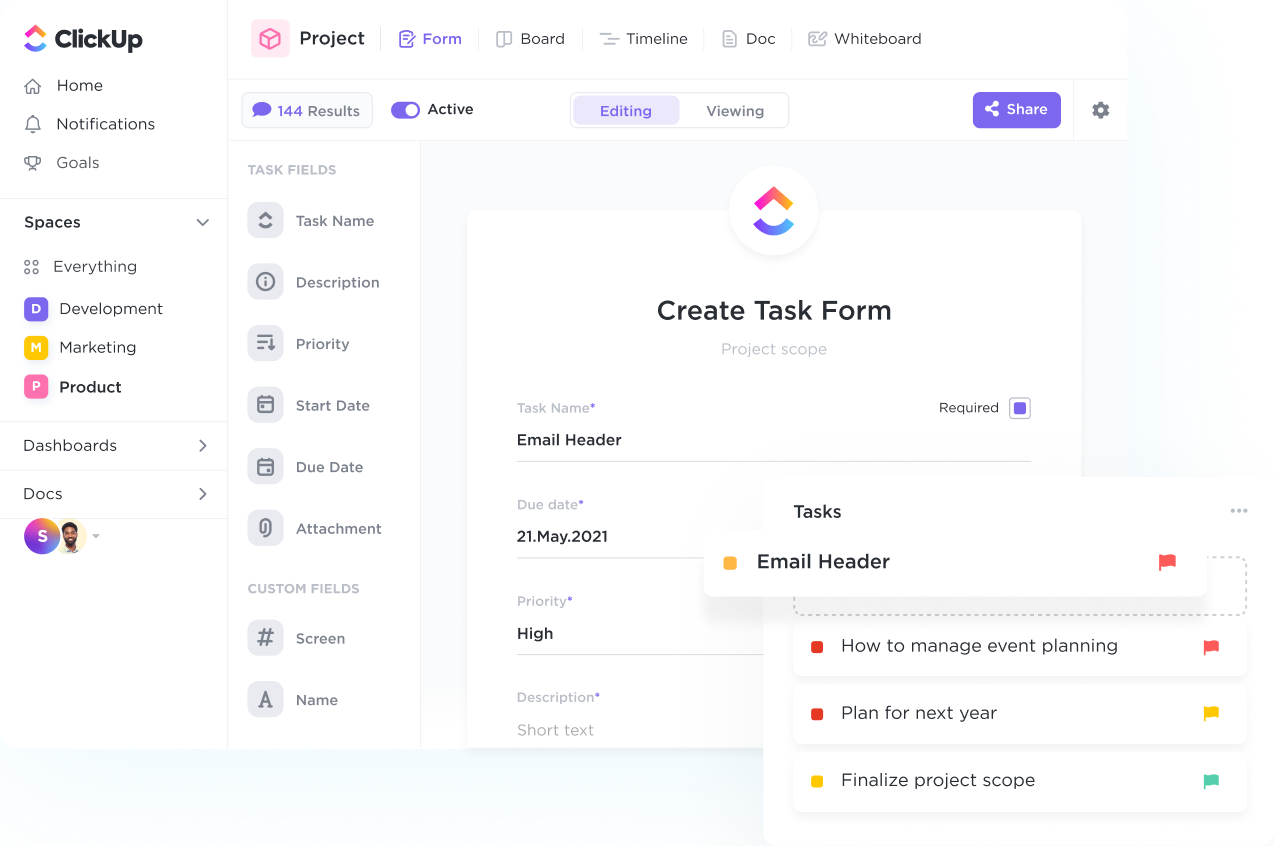Forms
Onboard customers and collect info in a snap.
Streamline your intake process, organize response data, and automatically create tasks with custom branded Forms powered by conditional logic.

Gantt Charts
Turbocharge your small business with ClickUp's customizable CRM system. Streamline your customer relationships, boost sales, and drive growth with our user-friendly platform. Say goodbye to scattered data and missed opportunities - ClickUp has everything you need to succeed. Sign up today and take your business to the next level.
Free forever. No credit card.
Forms
Streamline your intake process, organize response data, and automatically create tasks with custom branded Forms powered by conditional logic.

CRM Views
Manage everything from sales pipelines, customer engagement, and orders with ClickUp's 10+ highly flexible views. Easily track and manage your accounts on a List, Kanban Board, Table view, and more.

A CRM provides a centralized location to store all customer data, interactions, and transactions. This eliminates the need for multiple spreadsheets or systems, ensuring that all team members have access to the same up-to-date information about customers.
CRMs enable small businesses to track all customer interactions, including emails, phone calls, and meetings. This helps in maintaining consistent communication with customers, following up on leads, and providing timely responses to inquiries, ultimately enhancing customer relationships.
CRM systems can automate task assignments, reminders, and follow-ups, ensuring that important actions are not overlooked. This automation streamlines workflow processes, boosts productivity, and helps in managing daily tasks more efficiently.
CRMs assist small businesses in managing leads, tracking sales opportunities, and forecasting revenue. By organizing leads based on their stage in the sales pipeline and providing insights into customer behavior, CRMs help sales teams prioritize efforts and focus on high-potential leads.
CRMs allow small businesses to segment their customer base based on various criteria such as demographics, purchase history, or engagement level. This segmentation enables targeted marketing campaigns, personalized communication, and tailored offerings to different customer groups.
Key features and functionalities of CRM software that are most beneficial for small businesses include contact management, lead tracking, sales pipeline management, email marketing integration, and customer support ticketing.
CRM software helps small businesses by centralizing customer data, automating tasks, tracking interactions, and providing insights that enhance customer relationship management and sales processes.
Some recommended CRM software options for small businesses include HubSpot CRM, Zoho CRM, and Freshworks CRM.